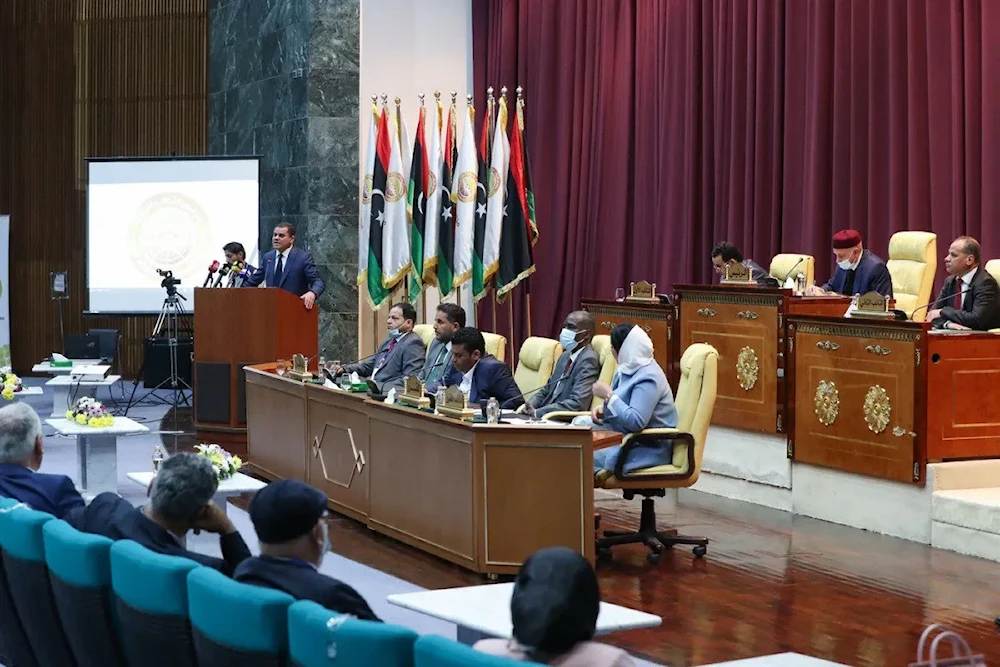Libya's eastern parliament approves national reconciliation law
Abdullah Belaihaq, spokesperson for the House of Representatives (HoR), announced on X that the legislation was approved on Tuesday by the majority of attendees.
-

Libyan Parliament session in Sirte, Libya, on March 9, 2021 (AFP/Getty Images)
Libya's eastern-based parliament has passed a National Reconciliation and Transitional Justice Law, three lawmakers confirmed, in an effort that aims to reunify the oil-rich country after more than a decade of factional conflict, Reuters reported on Wednesday.
Abdullah Belaihaq, spokesperson for the House of Representatives (HoR), announced on the X platform that the legislation was approved on Tuesday by the majority of attendees at the session held in Libya’s second-largest city, Benghazi.
However, the implementation of the law may face challenges, as Libya has remained divided since the 2014 civil war, which led to the emergence of two rival administrations competing for control in the east and west, following the NATO-backed uprising that ousted Muammar Gaddafi in 2011.
"I hope that it [the law] will be in effect all over the country and will not face any difficulty," House member Abdulmenam Alorafi said in a phone interview with Reuters on Wednesday.
The United Nations mission in Libya has repeatedly urged a rights-based, inclusive process for transitional justice and reconciliation in the North African nation.
A political process to end years of institutional division and armed conflict has been stalled since a planned election in December 2021 failed amid disputes over the eligibility of key candidates.
In Tripoli, the Government of National Unity (GNU), led by Prime Minister Abdulhamid al-Dbeibah, was formed through a UN-backed process in 2021. However, the parliament no longer recognizes its legitimacy. Dbeibah has vowed not to cede power to a new government without national elections.
Libya now has two competing legislative bodies: the HoR, elected in 2014 with a four-year mandate to oversee the political transition, and the High Council of State in Tripoli, established as part of a 2015 political agreement and drawn from a parliament first elected in 2012.
The Tripoli-based Presidential Council, which came to power with the GNU, has been working on a reconciliation project, holding a "comprehensive conference" with the support of the UN and the African Union. However, it has struggled to unite all rival factions due to ongoing political divisions.
Read more: Libya factions agree on Central Bank governor to ease crisis

 2 Min Read
2 Min Read








